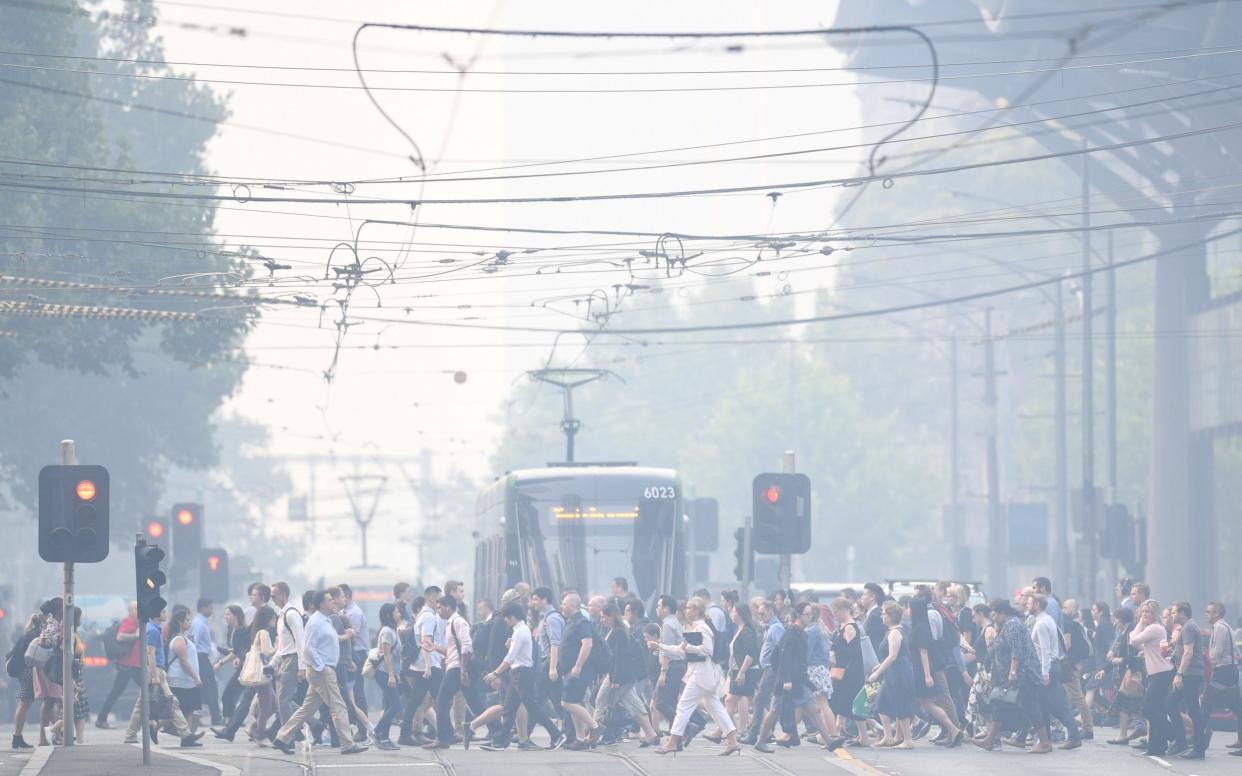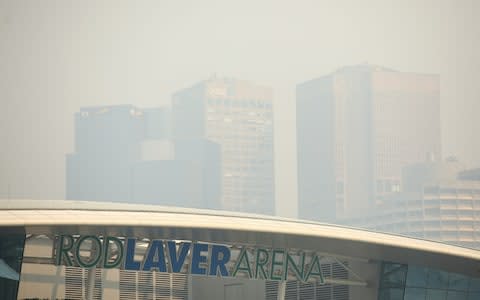Melbourne's air quality 'worst in world' as bushfire smoke blankets city ahead of Australian Open

Australia's devastating bushfire season is far from over despite cooler weather this week, Victorian state officials warned on Tuesday as Melbourne was blanketed by hazardous smoke.
At least 180 fires continued to burn across Victoria and New South Wales (NSW) states although widespread rainfall is forecast for fire-hit areas on the east coast from Wednesday.
About 20 bushfires were yet to be contained in NSW, Australia's most populous state, while in Victoria five fires were at the 'Watch and Act' advice warning, one level below emergency status, authorities said.
"I wish I could say this was over, but we have a long way to go. We've got the smoke in our communities at the moment and it is at very poor or hazardous levels," Lisa Neville, Victoria’s emergency services and police minister told a media briefing.
Brett Sutton, the state's chief health officer, said he believed air quality in Melbourne, Australia's second-biggest city, had dropped to the "worst in the world" overnight as cooler temperatures brought particles in the air close to the ground.
The poor air quality temporarily suspended practice sessions for the Australian Open at Melbourne Park on Tuesday, but qualifying began later in the morning.

Tennis Australia said onsite conditions were improving and were being constantly monitored.
Organisers said further decisions on match scheduling would be made using onsite data and in close consultation with its medical team, the Bureau of Meteorology, and scientists from the Environmental Protection Agency in Victoria state.
Firefighters in the region spent the night being called out to fire alarms triggered by the smoke haze.
Australia is experiencing one of most severe fire seasons on record, with bushfires that have been burning since September claiming the lives of 28 people and destroying more than 2,500 homes.
The political fallout from the unprecedented scale of the bushfires has pressured the conservative government to reconsider its policies on climate change.
Prime Minister Scott Morrison, who has come under heavy criticism for his handling of the crisis, has signalled the government may raise its targets for cuts to greenhouse gas emissions, and was open to the establishment of a powerful royal commission inquiry into the bushfires.
The federal government on Monday said A$50 million (£26 million) would be given to an emergency wildlife recovery programme, describing the bushfires as "an ecological disaster" that threatened several species including koalas and rock wallabies.

